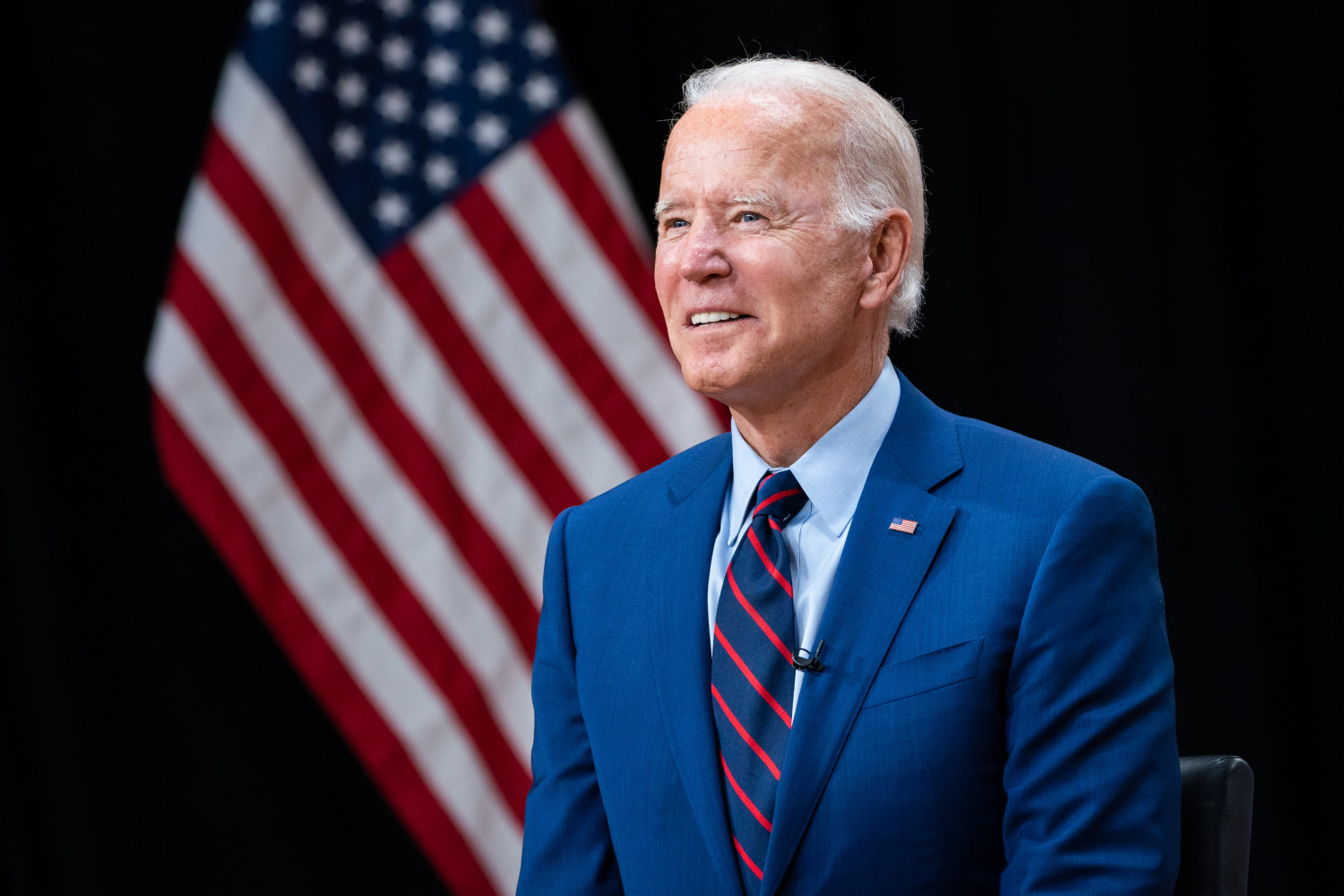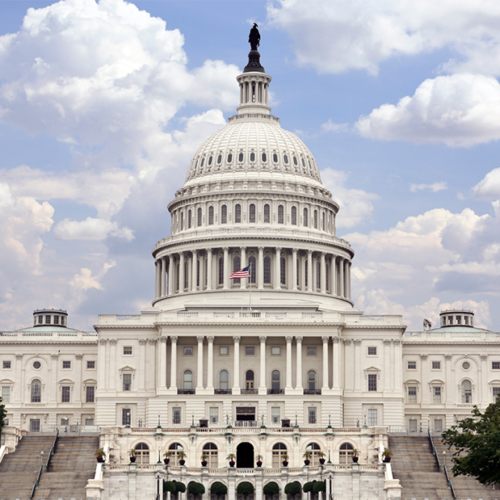
Biden Signs Spending Bill Funding Key Criminal Justice Programs
On December 29, 2022, President Joe Biden signed a $1.7 trillion omnibus spending package for Fiscal Year 2023. Among other administration priorities, the omnibus spending bill funds various state and local justice system grant programs within the U.S. Department of Justice. These programs include the Justice and Mental Health Collaboration Program (JMHCP), the Justice Reinvestment Initiative, and the Second Chance Act. The bill provides the following:
- $45 million for JMHCP (up from $40 million in FY2022), authorized under the Mentally Ill Offender Treatment and Crime Reduction Act and reauthorized under the Justice and Mental Health Collaboration Reauthorization Act of 2022 and the Traumatic Brain Injury and Post-Traumatic Stress Disorder Law Enforcement Training Act. These funds ensure that criminal justice and mental health systems throughout the country have the resources they need to promote public safety and connect people to treatment services while reducing unnecessary criminal justice contact. The law funds mental health courts, mental health and substance use disorder treatment for people in the criminal justice system, community reentry services, local law enforcement training to help officers identify and improve responses to people who have mental health needs, and many other programs intended to address the needs of people with mental health conditions coming into contact with the criminal justice system. It also funds the newly launched JMHCP website, an exciting new collaboration between The Council of State Governments (CSG) Justice Center and the U.S. Department of Justice’s Office of Justice Programs’ Bureau of Justice Assistance (BJA). U.S. Reps. Bobby Scott (D-VA), Tom Emmer (R-MN), Norma Torres (D-CA), and Don Bacon (R-NE); and U.S. Senators John Cornyn (R-TX) and Amy Klobuchar (D-MN) circulated letters in Congress in support of more funding for this program.
- $35 million for Justice Reinvestment (unchanged from FY2022), a data-driven approach that helps states reduce corrections and related criminal justice spending and reinvest savings into strategies that improve public safety. In recent years, more than 35 states have used a Justice Reinvestment approach to develop policies to slow overall prison growth, and for some states, reduce the total prison population. States have invested hundreds of millions in effective supervision and treatment programs to make communities safer. These investments have included efforts to improve community supervision, expand community-based treatment and services, create grants to support local law enforcement, enhance victims’ services, and more. Through the Justice Reinvestment Initiative, cumulative averted costs and savings in these states exceed $3.2 billion. U.S. Reps. Adam Schiff (D-CA), Steve Chabot (R-OH), Carol Miller (R-WV), and Lucy McBath (D-GA); and U.S. Senators Thom Tillis (R-NC) and Sheldon Whitehouse (D-RI) circulated letters in Congress in support of more funding for this program.
- $125 million for the Second Chance Act (up from $115 million in FY2022), which was reauthorized as part of the landmark First Step Act of 2018. Since its enactment, recipients of Second Chance Act grants have worked to improve outcomes for people returning to their communities from prisons and jails, providing vital services—including employment training and assistance, substance use disorder treatment, education, housing, family programming, mentoring, and victims’ support. It also funds the recently launched Reentry 2030, a collaboration between the CSG Justice Center and BJA. There have been more than 900 grants awarded in 49 states, the District of Columbia, and U.S. territories, allowing jurisdictions to develop, improve, and expand reentry programs and policies. Second Chance Act grantees have served more than 164,000 participants since 2009. U.S. Reps. Bill Johnson (R-OH) and Danny Davis (D-IL); and U.S. Senators Cory Booker (D-NJ) and Rob Portman (R-OH) circulated letters in Congress in support of more funding for this program.
In addition to funding the programs above, the bill includes:
- The requested $409.5 million for programs and activities authorized by the First Step Act, including medication-assisted treatment;
- $10 million for the Crisis Stabilization and Community Reentry Act of 2020, which addresses the mental health and substance use disorder needs of people who are recently released from correctional facilities;
- $700 million for Violence Against Women Act prevention and prosecution programs, providing services and assistance to victims of domestic violence and assault;
- $50 million for the Community Violence Intervention and Prevention initiative;
- $45 million for the Residential Substance Abuse Treatment for State Prisoners Program, which assists states with developing and implementing residential substance use disorder treatment programs within state correctional facilities and local correctional and detention facilities in which people are incarcerated long enough to permit substance use treatment;
- $45 million for Community Policing Development (CPD), which provides competitive grants, including directly to law enforcement agencies, in the following manner: $11 million to expand the use of crisis intervention teams to embed mental and behavioral health services within law enforcement agencies, including funding for specialized training; $16 million for officer training including scenario-based training developed in collaboration with community-based organizations, implicit bias, and duty to intervene techniques—no less than $3 million of which must be used for grants to regional de-escalation training centers that are administered by accredited universities of higher education and offer de-escalation training certified by a national certification program; $9 million for assisting agencies with gaining accreditation to ensure compliance with national and international standards covering all aspects of law enforcement policies, procedures, practices, and operations—no less than $2.5 million of which must be provided for small and rural law enforcement agencies for this purpose; $6 million for the continuation of the CPD Microgrants program that provides funding for demonstration and pilot projects that offer creative ideas to advance crime fighting, community engagement, problem solving, or organizational changes to support community policing; and $3 million for grants to support tolerance, diversity, and anti-bias training programs offered by organizations with well-established experience training law enforcement personnel and criminal justice professionals.
Commerce, Justice, Science, and Related Agencies funding summaries and one-page fact sheets are below:
Summary | Fact Sheet | Explanatory Statement
Photo credit: The White House
About the author

The Council of State Governments (CSG) Justice Center has launched the Collaborating for Youth and Public Safety Initiative…
Read MoreIn April 2025, Arkansas Governor Sarah Huckabee Sanders signed a package of bipartisan criminal justice legislation into law,…
Read MoreA bipartisan group of 88 lawmakers, led by Representatives Carol Miller (R-WV) and Danny Davis (D-IL), wrote a…
Read More Six States Commit to Improving Statewide Strategies to Address Youth Crime, Violence and Behavioral Health
Six States Commit to Improving Statewide Strategies to Address Youth Crime, Violence and Behavioral Health
The Council of State Governments (CSG) Justice Center has launched the Collaborating…
Read More Explainer: How a New Law in Arkansas Tackles Crime, Recidivism, and Community Supervision Challenges
Explainer: How a New Law in Arkansas Tackles Crime, Recidivism, and Community Supervision Challenges
In April 2025, Arkansas Governor Sarah Huckabee Sanders signed a package of…
Read More Bipartisan Group of 88 Lawmakers Push for Continued Funding for Reentry and Recidivism Programs
Bipartisan Group of 88 Lawmakers Push for Continued Funding for Reentry and Recidivism Programs
A bipartisan group of 88 lawmakers, led by Representatives Carol Miller (R-WV)…
Read More Finding Solutions to Complex Criminal Justice Issues: Q&A with New CSG Justice Center Advisory Board Member Justice Briana Zamora
Finding Solutions to Complex Criminal Justice Issues: Q&A with New CSG Justice Center Advisory Board Member Justice Briana Zamora
The CSG Justice Center Advisory Board establishes the policy and project priorities…
Read More










